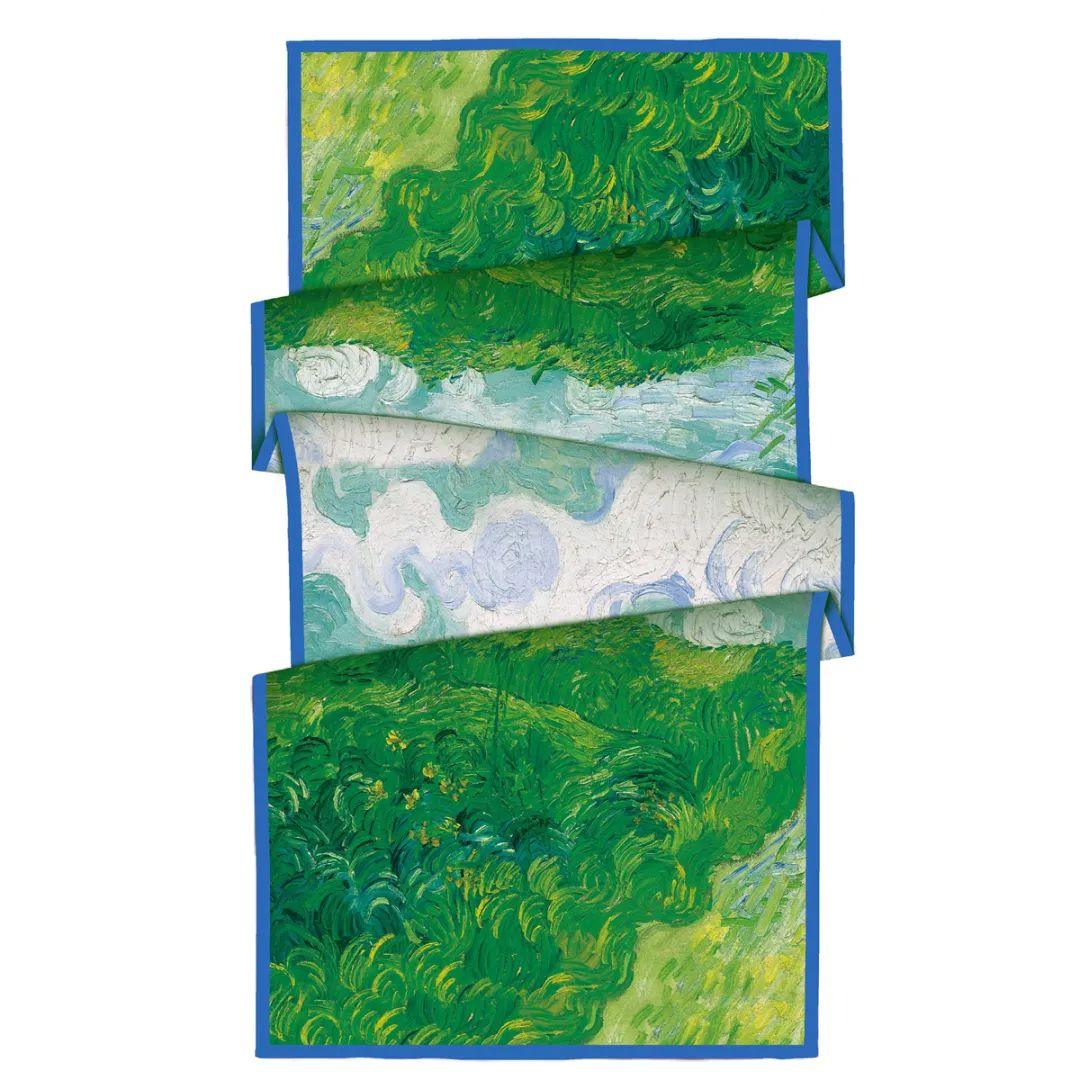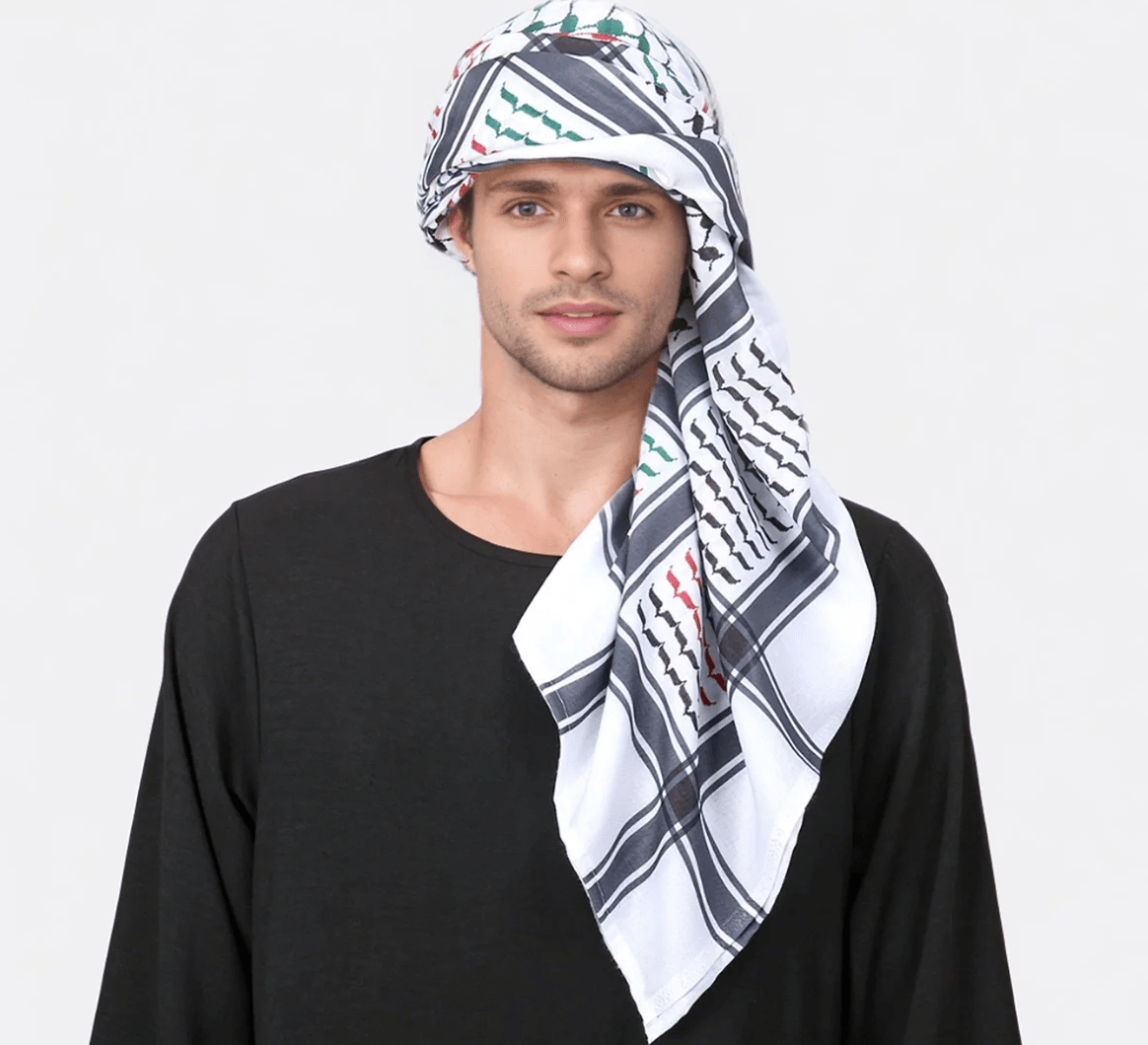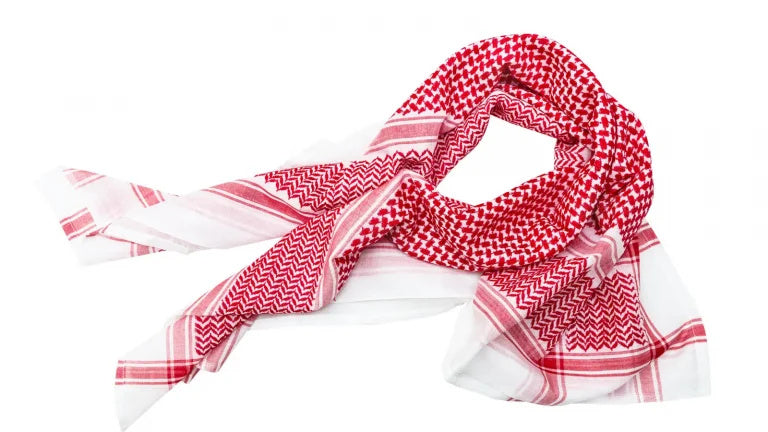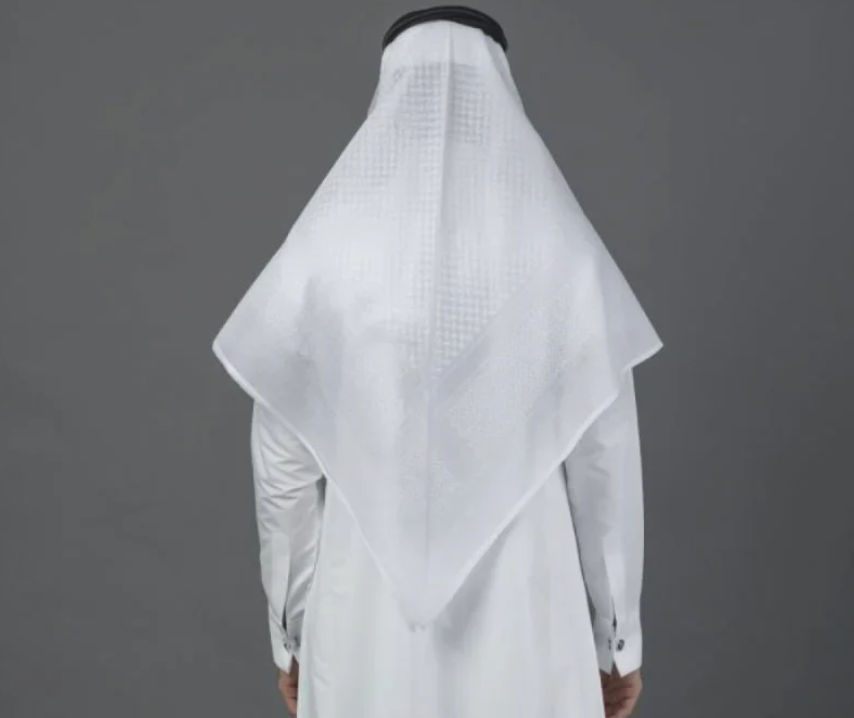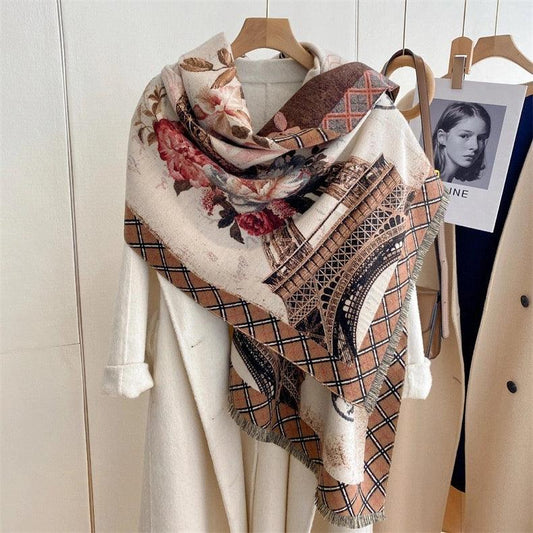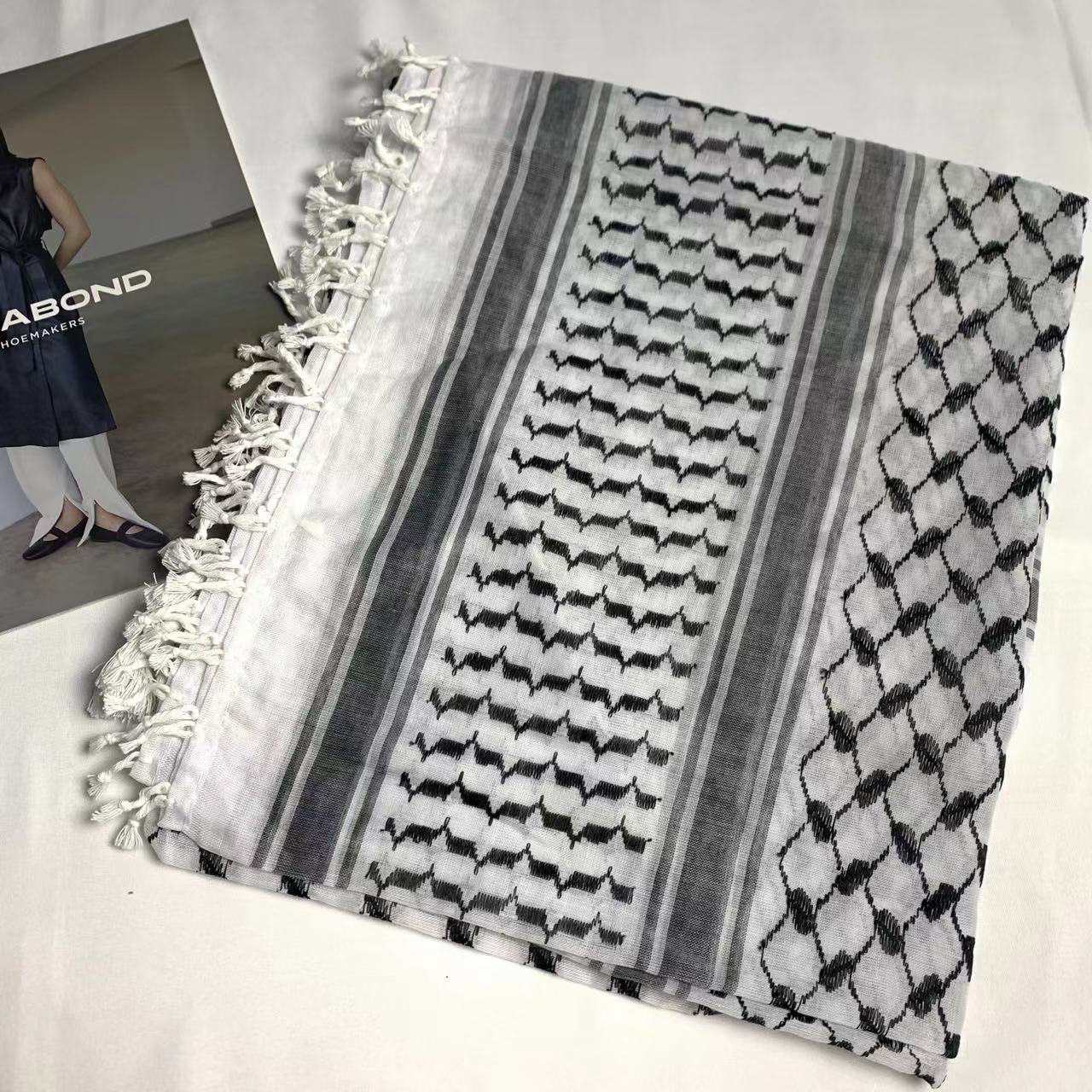
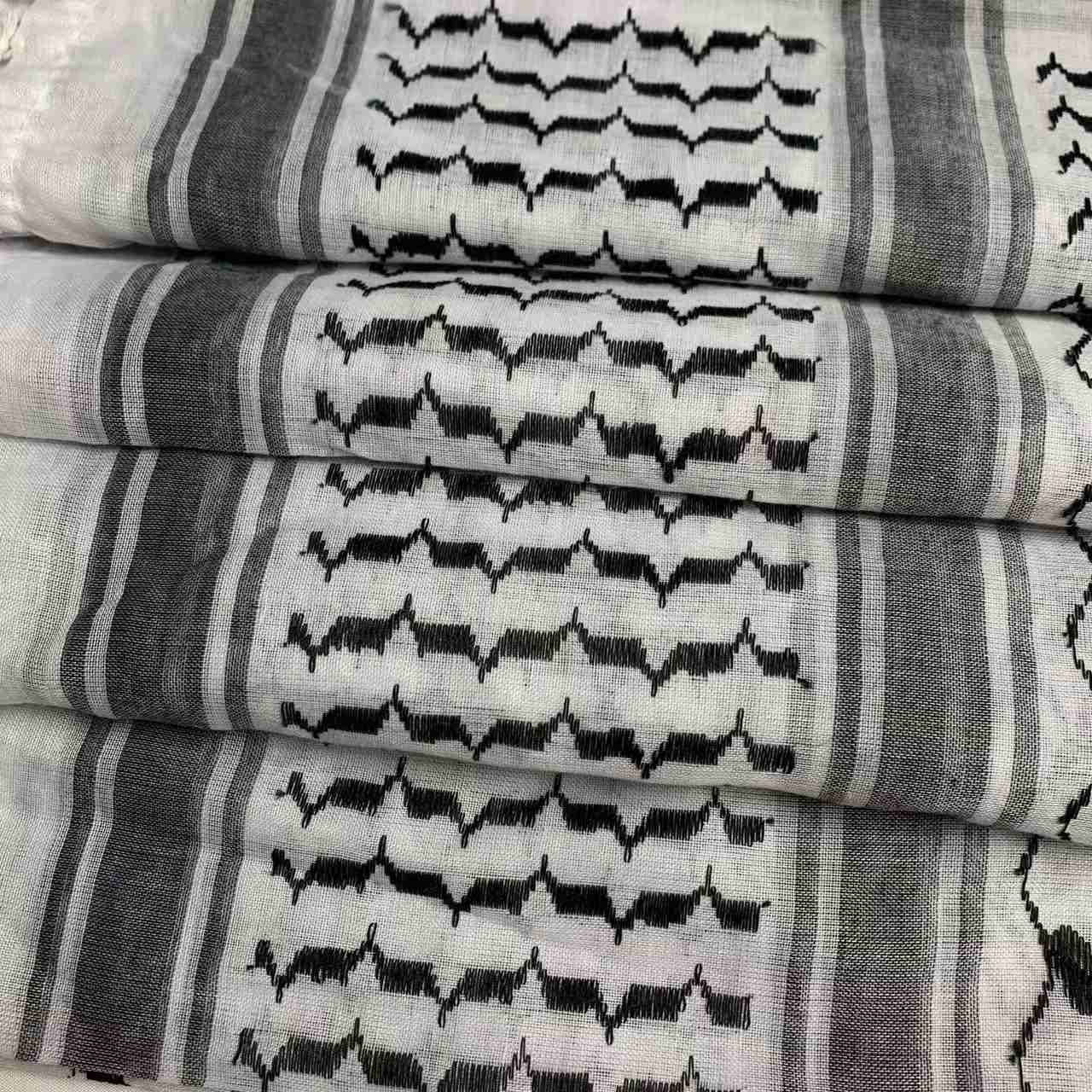
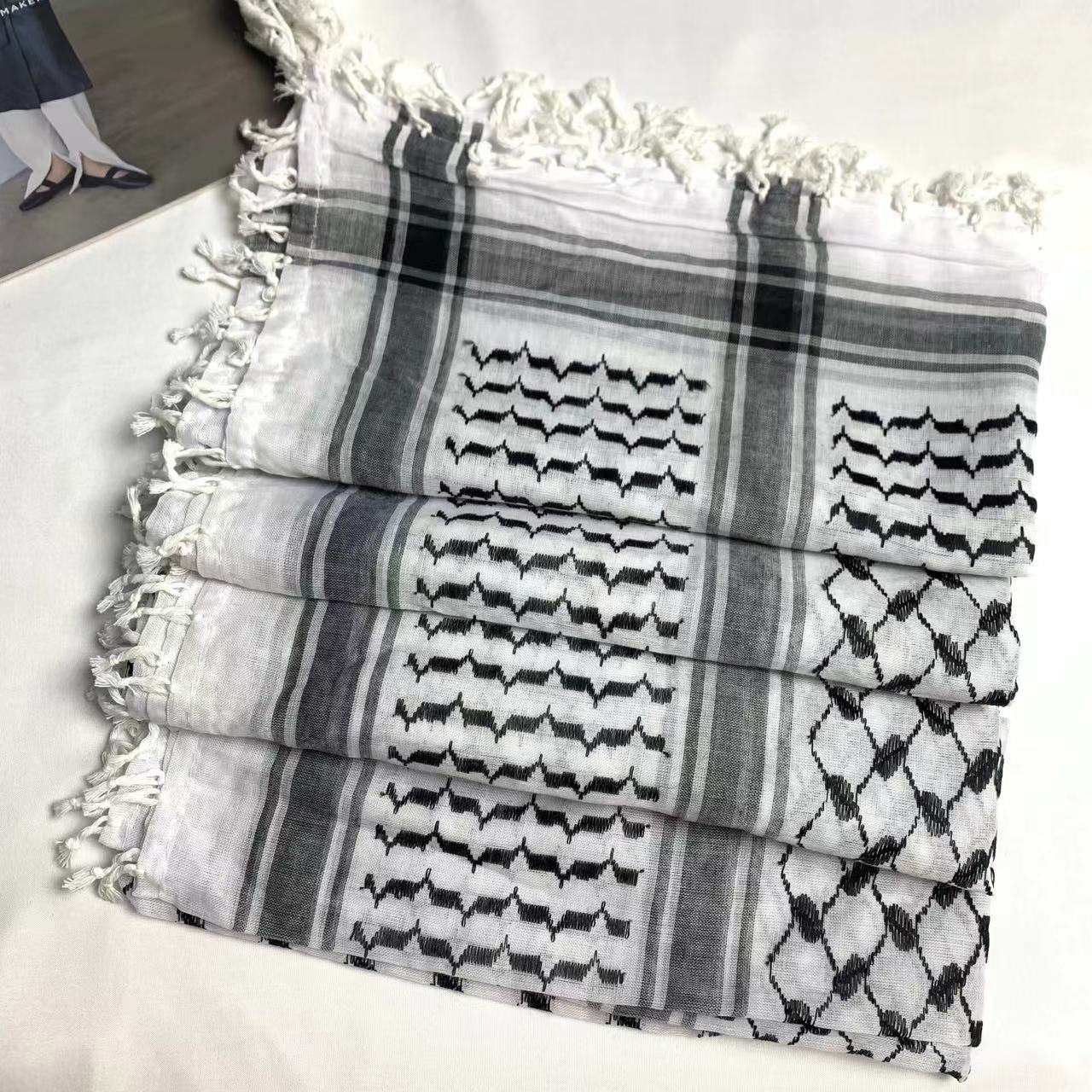
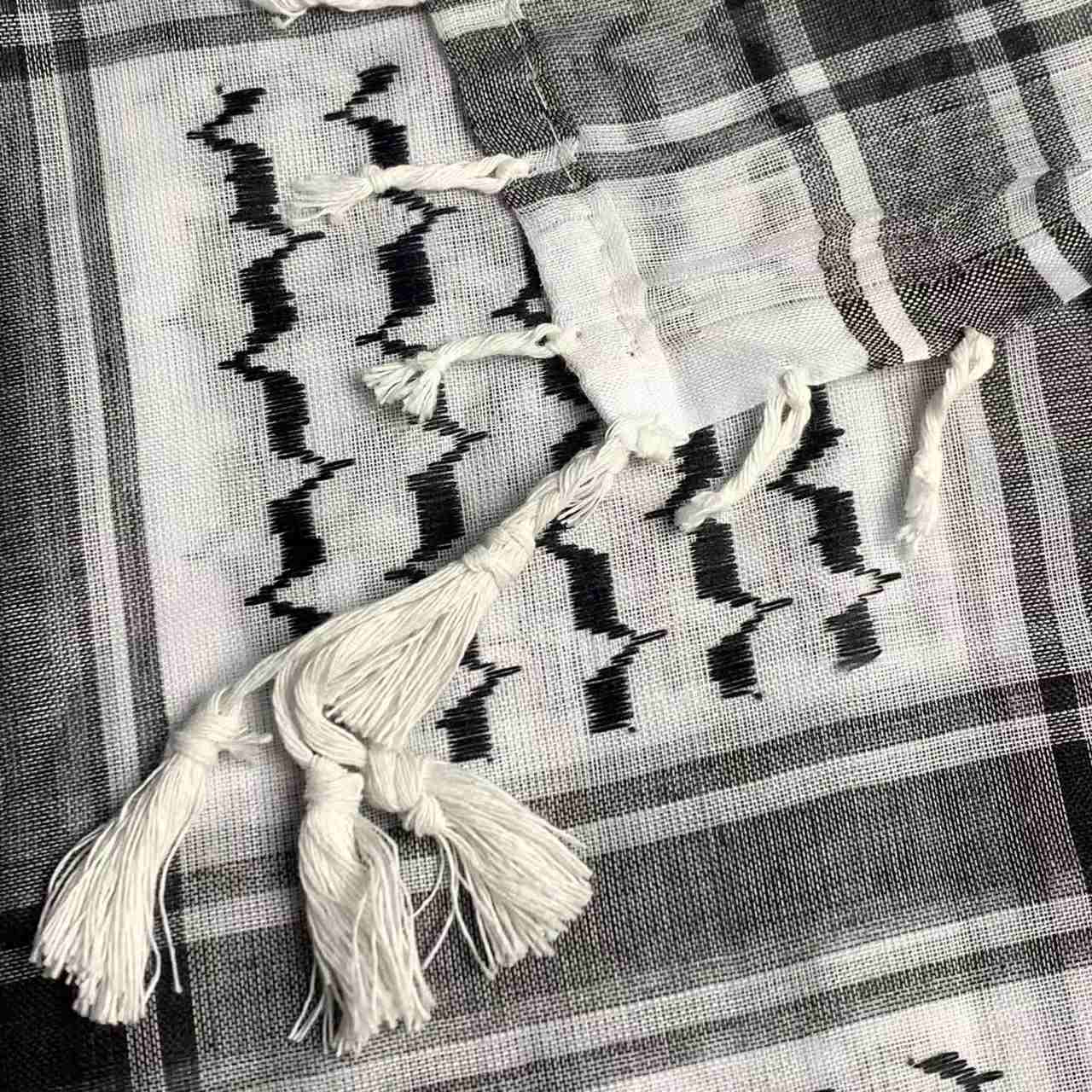
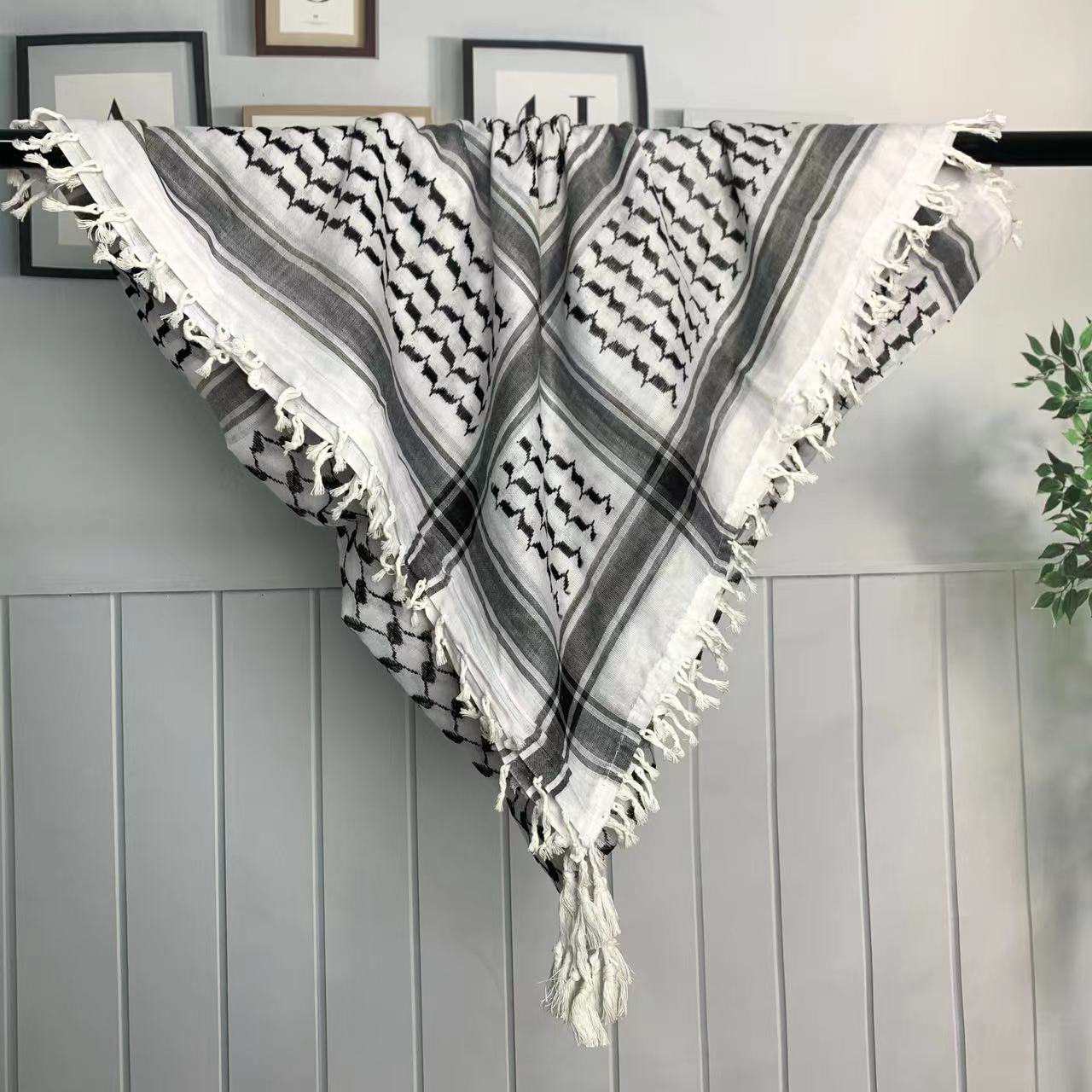
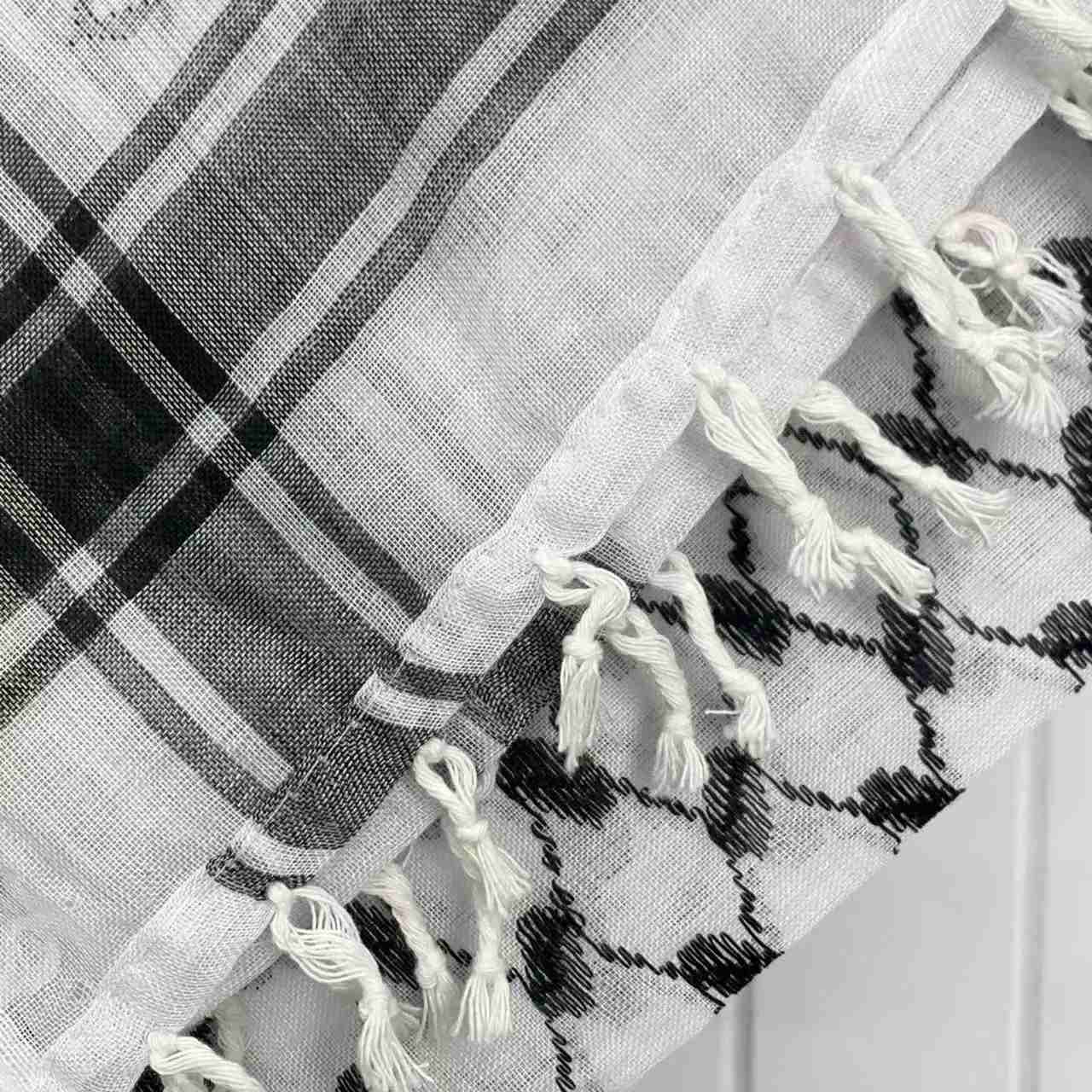
- Description
- Shipping
- Reviews
The Transformation of the Keffiyeh in Palestinian Culture
Product Description:
- Polyester 100%
- Jacquard
- 125cm x 125cm ( 49.2"W x 49.2"L )
The keffiyeh, initially a practical garment designed to shield against the harsh desert sun, has undergone a significant transformation, evolving into a potent symbol of Palestinian identity and unity. Its journey from being a functional attire worn by Bedouin tribes to an emblem representing Palestinian cultural and national identity is deeply rooted in history and has been influenced by various political and social changes.
Originally, the keffiyeh was favored by both Jewish and Arab communities in the region due to its practicality in the desert environment. However, it gradually became associated with class struggle as rural farmers wore it while the elite preferred the fez. This distinction further cemented the keffiyeh's association with the working class and the Palestinian struggle.
During the 1930s revolt against the British, the keffiyeh emerged as a distinctive national symbol that united all Palestinians. Rebels strategically wore it to conceal their identities and evade potential repercussions from British authorities. Following the establishment of the state of Israel in 1948 and the subsequent displacement of hundreds of thousands of Palestinians, the keffiyeh became a symbol of resilience and emotional attachment to the land.
In the 1970s, the keffiyeh gained prominence when Yasser Arafat, the leader of the Palestine Liberation Organization, adopted and popularized it. Arafat's iconic style, featuring the keffiyeh draped over his head and shoulders, became synonymous with the Palestinian cause. Since then, the keffiyeh has been referred to in news headlines as "the unofficial flag of Palestine," and May 11 has been designated as World Keffiyeh Day by Palestinian communities worldwide.
The keffiyeh's influence has transcended geographical boundaries, with activists and supporters globally adopting it as a gesture of solidarity with the Palestinian cause. The fashion industry has played a crucial role in spreading the keffiyeh's popularity worldwide, although debates have arisen regarding the need to respect its political and historical significance.
Despite the challenges faced by keffiyeh manufacturers in the Palestinian territories, including competition from factories in China and the appropriation of its design by some prominent fashion brands, the keffiyeh remains a powerful symbol of Palestinian identity, resilience, and unity in the face of adversity. It continues to be worn by Palestinians and supporters worldwide, serving as a reminder of their shared history and struggle.





At https://womanscarf.com/(the “Site”), we want to ensure you receive your orders in a timely and efficient manner. This Shipping and Taxes Policy describes our shipping and delivery process, as well as our tax collection practices.
- Processing Time
Most orders received before 5:00 p.m. Eastern Time, Monday through Friday, are shipped within 5 working days! Orders placed on Saturdays, Sundays, or holidays will be processed the next business day. As a security precaution, initial orders and orders shipping to alternate addresses may be held for extended verification. We reserve the right to make partial shipments, which will not relieve you of your obligation to pay for the remaining deliveries.
- Shipping Options and Charges
We offer various shipping options for your convenience, including standard, expedited, and international shipping. Shipping charges will be calculated based on the shipping option selected and the destination address. Shipping charges will be shown on your order form before you submit your order.
- Order Tracking
Once your order has shipped, we will provide you with a tracking number so you can track your package online. You will also receive email updates on the status of your order and estimated delivery date.
- Delivery Issues
If you experience any issues with the delivery of your order, please contact us immediately. We will work with our shipping carrier to resolve any issues and ensure your order is delivered as quickly as possible.
- Shipping Restrictions
We currently do not ship to certain countries or regions. Please check our website for the most up-to-date list of shipping restrictions.
- Taxes
A separate charge for taxes will be shown on the invoice. We are required to collect sales tax of 12.5% on all orders shipped to all Indian states. This tax is included in the prices displayed on our website.
- Title and Risk of Loss
All items purchased from our website are made pursuant to a shipment contract. This means that the risk of loss and title for such items passes to you upon our delivery to the carrier.
For more information on our shipping policies, including rates, delivery times, and delays, please refer to our Online Customer Service page or call us at 18058801462
Please note that this sample Shipping and Taxes Policy is for informational purposes only and is not a substitute for legal advice. You should consult with a qualified attorney to ensure your Shipping and Taxes Policy complies with applicable laws and regulations.

Fabric selection:
High-quality pure cotton yarns or cotton blends are usually selected to ensure comfort, breathability and durability.
In some seasons, wool or other natural fibers may be used to increase warmth retention.

Weaving process:
Jacquard technology: Use a jacquard loom to achieve complex pattern weaving by controlling the rise and fall of each warp. This is especially important for the geometric patterns and symbols commonly found on Arabic scarf.

Quality inspection and packaging:
Carry out final quality inspection and packaging of the finished to ensure that each product is up to standard and free of chromatic aberrations, broken wires or pattern errors.
Collections
-
Keffiyeh Scarf
The Keffiyeh (or Shemagh, Hatta) is a traditional Middle Eastern and Arab...
-
Shemagh Scarf
The Shemagh is a traditional Arabic shawl widely used in the Middle...
-
Ghutra Scarf
The Ghutra is a traditional Arab headscarf similar to the Shemagh, but...
You may also like
-
“Arrested, Shot, Still Fighting to Make America Great Again.” --Trump
Regular price $10.00 USDSale price $10.00 USDUnit price per
Regular price -
Eiffel Tower Printed Scarf | Import-Ready Designs for Global Exporters
Regular price $14.28 USDSale price $14.28 USDUnit price per
Regular price$17.14 USDSale -
"Starry Night Dream: Van Gogh Art Inspired Scarf" --- Starlight Blue & Evening Blue
Regular price $7.19 USDSale price $7.19 USDUnit price per
Regular price$8.89 USDSale -
2024 Paris Olympic Lavender Flower Print Shawl Scarf --Lilac & Lavender Fog
Regular price $7.19 USDSale price $7.19 USDUnit price per
Regular price$8.59 USDSale
